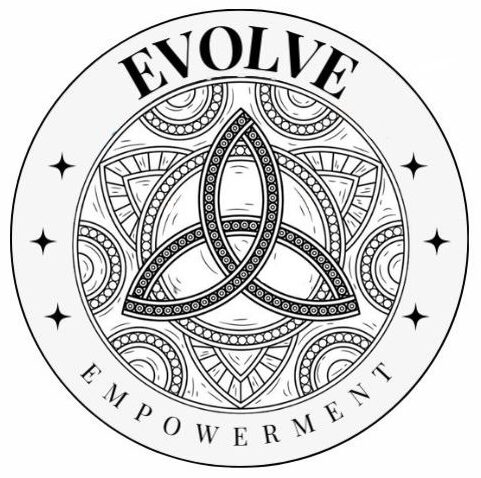The Invisible Architects of Daily Life
There are moments when you catch yourself brushing your teeth, reaching for your phone, or taking that same shortcut to work, when it dawns on you that you didn’t choose to do any of it consciously. Habits. They are the hidden architecture of our daily lives. Quiet engineers that sculpt our reality.
But what exactly are they?
Habits are automatic behaviors triggered by context, created through repetition. From a neuroscience perspective, they’re encoded in a part of the brain called the basal ganglia, which is also responsible for motor control and procedural learning. This little cluster of neurons is what allows you to function on autopilot—efficiently, but not always consciously.
Repetition, Reward, and the Ritual of the Everyday
Charles Duhigg, in his seminal book The Power of Habit, introduced a model that has now become a psychological staple: the Cue-Routine-Reward loop. A cue triggers a behavior, which is followed by a reward, reinforcing the habit. Over time, this loop carves neural pathways—like trails through a forest that become easier to follow the more they’re used.
But what about routines? Or rituals?
Routines are structured sequences of behaviors, often involving multiple habits. They may or may not carry emotional weight. Rituals, on the other hand, are infused with meaning and symbolism. Making coffee can be a habit, part of a morning routine, or—if done with mindfulness and care—a comforting ritual.
Science has shown that it can take anywhere between 21 and 66 days to form a new habit, depending on the complexity and the individual. Despite the myths, there’s no magic number. What matters more is consistency and emotional resonance.

Psychological Machinery Behind Habits
Humans crave familiarity. The brain is an energy-saving machine, and habits are shortcuts that preserve cognitive resources. Behavioral psychology tells us that behaviors reinforced with positive outcomes are more likely to be repeated—Pavlov, Skinner, and others have made this crystal clear.
Cognitive Behavioral Therapy (CBT), widely used in treating anxiety and depression, leverages this principle. By identifying harmful habitual thought patterns and systematically replacing them with constructive ones, CBT exemplifies how habit science can be used for healing.
Discipline is what forges the road. Motivation? A spark. One fades, the other builds.
“Start your professional ascent by connecting with a strategic, ambitious game-changing guide ”The Millionaire’s Edge”. Will you gain knowledge, and ascend? This is your journey.”
Crafting Positive Routines That Transform
In my own life, I’ve learned that trying to change too much too quickly is a perfect recipe for disappointment. The secret? Micro-goals. When I wanted to rebuild my physical health after a long sedentary period, I didn’t start with a gym membership—I started with walking around the block. Each small win was a vote for the person I wanted to become.
Apps like Habitica or Loop Habit Tracker made it easier to stay on course, turning self-improvement into a kind of quiet game. There’s something deeply satisfying about checking a box.
Even more powerful is understanding your own “cues”—those triggers that initiate a routine. By replacing a harmful routine with a beneficial one, while maintaining the same cue and reward, you slowly remap your neural circuits. That’s not just theory. It’s neuroplasticity in action.
Resistance, Procrastination, and the Myth of Willpower
Obstacles are inevitable. The most common? Yourself. Procrastination isn’t laziness—it’s fear wearing a bathrobe. A fear of failing. Or maybe a fear of success. That’s why building habits is not just about discipline, but also about grace.
On the days when I stumble (and I often do), I return not to guilt, but to curiosity. What caused the slip? Am I tired? Distracted? Disconnected? Developing self-compassion has been more powerful than any productivity hack. Because shame paralyzes. But curiosity moves.
And in the end, the structure has to breathe. Too much rigidity, and it breaks. Too much flexibility, and it collapses. The art is in the dance.

The Social Ecosystem of Habit Change
We like to think of habits as solitary, private matters. But they rarely are. If your friends smoke, you’re more likely to. If your partner starts working out, you might too. Social influence is both a trap and a tool.
I joined an online group through Wealthy Affiliate when I decided to build new work habits around writing and digital entrepreneurship. The structure of accountability—combined with a sense of belonging—made all the difference. No one succeeds in a vacuum.
If you’re just starting, consider engaging with a forum, a Facebook group, even a coach. Family dynamics can help or hinder, but setting clear expectations helps. A morning run is easier if someone’s waiting at the corner.
A Gentle Rewiring
Habits are not shackles. They’re seeds. And every day, you choose which ones to water. The science of habits is not some sterile domain of lab rats and academic papers. It’s deeply human. Messy. Lyrical.
You don’t need to overhaul your life overnight. Start with one small change. One conscious choice. And let that ripple outward.
Begin your own transformation by joining a supportive, growth-focused platform like The Millionaire’s Edge. You’ll find tools, people, and momentum. The rest? That’s your dance.
FAQ: Frequently Asked Questions.
How long does it take to form a habit?
Scientific studies suggest it takes anywhere from 21 to 66 days to form a habit, depending on the behavior, context, and individual differences.
What’s the difference between a habit, a routine, and ritual?
A habit is automatic, a routine is structured, and a ritual is infused with meaning. A morning coffee could be all three, depending on how you relate to it.
Can habits really change your life?
Absolutely. Small consistent habits have a compound effect over time, shaping not just behavior but identity.
Why do I keep failing to stick to new habits?
Common reasons include setting goals that are too big, lacking emotional motivation, or trying to change without addressing environmental cues.
Are habit tracker apps effective?
For many people, yes. They provide structure, accountability, and a sense of progress—important reinforcers in habit formation.
What’s more important: motivation or discipline?
Motivation gets you started. Discipline keeps you going. Relying solely on motivation is unreliable; discipline builds consistency.
Bibliography
- Duhigg, Charles. The Power of Habit. Random House, 2012.
- Wood, Wendy, and Dennis Rünger. “Psychology of Habit.” Annual Review of Psychology, vol. 67, 2016.
- Lally, Phillippa et al. “How Are Habits Formed: Modelling Habit Formation in the Real World.” European Journal of Social Psychology, 2010.
Disclosure: This article may contain affiliate links. If you click on these links and make a purchase, I may earn a commission at no extra cost to you.

